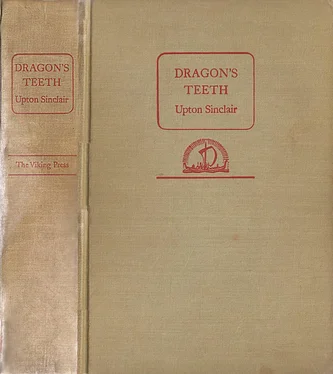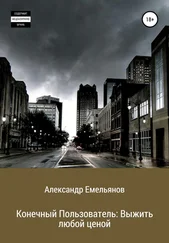Пользователь - o 3b3e7475144cf77c
Здесь есть возможность читать онлайн «Пользователь - o 3b3e7475144cf77c» весь текст электронной книги совершенно бесплатно (целиком полную версию без сокращений). В некоторых случаях можно слушать аудио, скачать через торрент в формате fb2 и присутствует краткое содержание. Жанр: Старинная литература, на русском языке. Описание произведения, (предисловие) а так же отзывы посетителей доступны на портале библиотеки ЛибКат.
- Название:o 3b3e7475144cf77c
- Автор:
- Жанр:
- Год:неизвестен
- ISBN:нет данных
- Рейтинг книги:4 / 5. Голосов: 1
-
Избранное:Добавить в избранное
- Отзывы:
-
Ваша оценка:
- 80
- 1
- 2
- 3
- 4
- 5
o 3b3e7475144cf77c: краткое содержание, описание и аннотация
Предлагаем к чтению аннотацию, описание, краткое содержание или предисловие (зависит от того, что написал сам автор книги «o 3b3e7475144cf77c»). Если вы не нашли необходимую информацию о книге — напишите в комментариях, мы постараемся отыскать её.
o 3b3e7475144cf77c — читать онлайн бесплатно полную книгу (весь текст) целиком
Ниже представлен текст книги, разбитый по страницам. Система сохранения места последней прочитанной страницы, позволяет с удобством читать онлайн бесплатно книгу «o 3b3e7475144cf77c», без необходимости каждый раз заново искать на чём Вы остановились. Поставьте закладку, и сможете в любой момент перейти на страницу, на которой закончили чтение.
Интервал:
Закладка:
"I don't mean that, Lanny. I mean some sort of plot or conspiracy, an attempt to overthrow
the government."
"You know that Freddi didn't believe in anything of the sort. I've heard him say a thousand
times that he believed in government by popular consent, such as we have in America, and such
as the Weimar Republic tried to be—or anyhow, was supposed to be."
"But isn't it conceivable that Freddi might have changed after the Reichstag fire, and after
seeing what was done to his comrades? It wouldn't have been the Weimar Republic he was
trying to overthrow, but Hitler. Isn't it likely that he and many of his friends changed their
minds?"
"Many did, no doubt; but hardly Freddi. What good would he have been? He shuts his eyes
when he aims a gun!"
"There are plenty of others who would do the shooting. What Freddi had was money—scads
of it that he could have got from his father. There were the months of March and April—and
how do you know what he was doing, or what his comrades were planning and drawing him
into?"
"I think he would have told us about it, Irma. He would have felt in honor, bound."
"He might have been in honor bound the other way, he couldn't talk about those comrades. It
might even be that he didn't know what was going on, but that others were using him. Some of
those fellows I met at the school—they were men who would have fought back, I know. Ludi
Schultz, for example—do you imagine he'd lie down and let the Nazi machine roll over him?
Wouldn't he have tried to arouse the workers to what they call 'mass action'? And wouldn't his
wife have helped him? Then again, suppose there was some Nazi agent among them, trying to
lure them into a trap, to catch them in some act of violence so that they could be arrested?"
"The Nazis don't have to have any excuses, Irma; they arrest people wholesale."
"I'm talking about the possibility that there might be some real guilt, or at any rate a charge
against Freddi. Some reason why Göring would consider him dangerous and hold onto him."
"The people who are in the concentration camps aren't those against whom they have
criminal charges. The latter are in the prisons, and the Nazis torture them to make them betray
their associates; then they shoot them in the back of the neck and cremate them. The men
who are in Dachau are Socialist politicians and editors and labor leaders—intellectuals of all
the groups that stand for freedom and justice and peace."
"You mean they're there without any charge against them?" "Exactly that. They've had no
trial, and they don't know what they're there for or how long they're going to stay. Two or
three thousand of the finest persons in Bavaria—and my guess is that Freddi has done no more
than any of the others."
Irma didn't say any more, and her husband knew the reason—she couldn't believe what he
said. It was too terrible to be true. All over the world people were saying that, and would go on
saying it, to Lanny's great exasperation.
V
The days passed, and it was time for the Munich opening, and still nobody had called to
admit a blunder on the part of an infallible governmental machine. Lanny brooded over the
problem continually. Did the fat General expect him to go ahead delivering the goods on credit,
and without ever presenting any bill? Lanny thought: "He can go to hell! And let it be soon!"
In his annoyance, the Socialist in disguise began thinking about those comrades whom he had
met at the school receptions. Rahel had given him addresses, and in his spare hours he had
dropped in at place after place, always taking the precaution to park his car some distance
away and to make sure that he was not followed. In no single case had he been able to find the
persons, or to find anyone who would admit knowing their whereabouts. In most cases people
wouldn't even admit having heard of them. They had vanished off the face of the Fatherland.
Was he to assume that they were all in prisons or concentration camps? Or had some of them
"gone underground"? Once more he debated how he might find his way to that nether region—
always being able to get back to the Hotel Adlon in time to receive a message from the second in
command of the Nazi government!
Irma went to à thé dansant at the American Embassy, and Lanny went to look at some
paintings in a near-by palace. But he didn't find anything he cared to recommend to his
clients, and the prices seemed high; he didn't feel like dancing, and could be sure that his wife
had other partners. His thoughts turned to a serious-minded young "commercial artist" who
wore large horn-rimmed spectacles and hated his work—the making of drawings of abnormally
slender Aryan ladies wearing lingerie, hosiery, and eccentric millinery. Also Lanny thought about
the young man's wife, a consecrated soul, and an art student with a genuine talent. Ludwig
and Gertrude Schultz —there was nothing striking about these names, but Ludi and Trudi
sounded like a vaudeville team or a comic strip.
Lanny had phoned to the advertising concern and been informed that the young man was no
longer employed there. He had called the art school and learned that the former student was
no longer studying. In neither place did he hear any tone of cordiality or have any information
volunteered. He guessed that if the young people had fled abroad they would surely have sent a
message to Bienvenu. If they were "sleeping out" in Germany, what would they be doing?
Would they go about only at night, or would they be wearing some sort of disguise? He could
be fairly sure they would be living among the workers; for they had never had much money,
and without jobs would probably be dependent upon worker comrades.
VI
How to get underground! Lanny could park his car, but he couldn't park his accent and
manners and fashionable little brown mustache. And above all, his clothes! He had no old ones;
and if he bought some in a secondhand place, how would he look going into a de luxe hotel? For
him to become a slum-dweller would be almost as hard as for a slum-dweller to become a
millionaire playboy.
He drove past the building where the workers' school had been. There was now a big swastika
banner hanging from a pole over the door; the Nazis had taken it for a district headquarters. No
information to be got there! So Lanny drove on to the neighborhood where the Schultzes had
lived. Six-story tenements, the least "slummy" workingclass quarter he had seen in Europe. The
people still stayed indoors as much as they could. Frost had come, and the window-boxes with
the flowers had been taken inside.
He drove past the house in which he had visited the Schultzes. Nothing to distinguish it from
any other house, except the number. He drove round the block and came again, and on a sudden
impulse stopped his car and got out and rang the Pfortner's bell. He had already made one
attempt to get something here, but perhaps he hadn't tried hard enough.
This time he begged permission to come in and talk to the janitor's wife, and it was grudgingly
granted. Seated on a wooden stool in a kitchen very clean, but with a strong smell of pork and
cabbage, he laid himself out to make friends with a suspicious woman of the people. He
explained that he was an American art dealer who had met an artist of talent and had taken
some of her work and sold it, and now he owed her money and was troubled because he was
unable to find her. He knew that Trudi Schultz had been an active Socialist, and perhaps for
Читать дальшеИнтервал:
Закладка:
Похожие книги на «o 3b3e7475144cf77c»
Представляем Вашему вниманию похожие книги на «o 3b3e7475144cf77c» списком для выбора. Мы отобрали схожую по названию и смыслу литературу в надежде предоставить читателям больше вариантов отыскать новые, интересные, ещё непрочитанные произведения.
Обсуждение, отзывы о книге «o 3b3e7475144cf77c» и просто собственные мнения читателей. Оставьте ваши комментарии, напишите, что Вы думаете о произведении, его смысле или главных героях. Укажите что конкретно понравилось, а что нет, и почему Вы так считаете.




